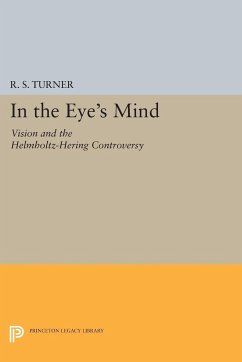One of the most persistent controversies of modern science has dealt with human visual perception. It erupted in Germany during the 1860s as a dispute between physiologists Hermann von Helmholtz, Ewald Hering, and their schools. Well into the twentieth century these groups warred over the origins of our capacity to perceive space, over the retinal mechanisms that mediate color sensations, and over the role of mind, experience, and inference in vision. Here R. Steven Turner explores the impassioned exchanges of those rival schools, both to illuminate the clash of theory and to explore the larger role of controversy in the development of science. Controversy, he suggests, is constitutive of scientific change, and he uses the Helmholtz-Hering dispute to illustrate how polemics and tacit negotiation shape evolving theoretical stances. Turner focuses on the arguments and issues of the dispute, issues that ranged from the interpretation of color blindness and optical illusions to the therapeutic practices of clinical ophthalmology. As well, he focuses on the personalities, institutions, disciplinary structures, and methodological commitments that shaped the dispute, including the schools' rhetorical strategies. He explores the incommensurability of the protagonists' viewpoints and examines the reception of the theories and the changing fortunes of the schools. Finally, Turner traces the controversy into the twentieth century, where the issues continue to inform the study of vision today. Originally published in 1994. The Princeton Legacy Library uses the latest print-on-demand technology to again make available previously out-of-print books from the distinguished backlist of Princeton University Press. These editions preserve the original texts of these important books while presenting them in durable paperback and hardcover editions. The goal of the Princeton Legacy Library is to vastly increase access to the rich scholarly heritage found in the thousands of books published by Princeton University Press since its founding in 1905.
Hinweis: Dieser Artikel kann nur an eine deutsche Lieferadresse ausgeliefert werden.
Hinweis: Dieser Artikel kann nur an eine deutsche Lieferadresse ausgeliefert werden.








